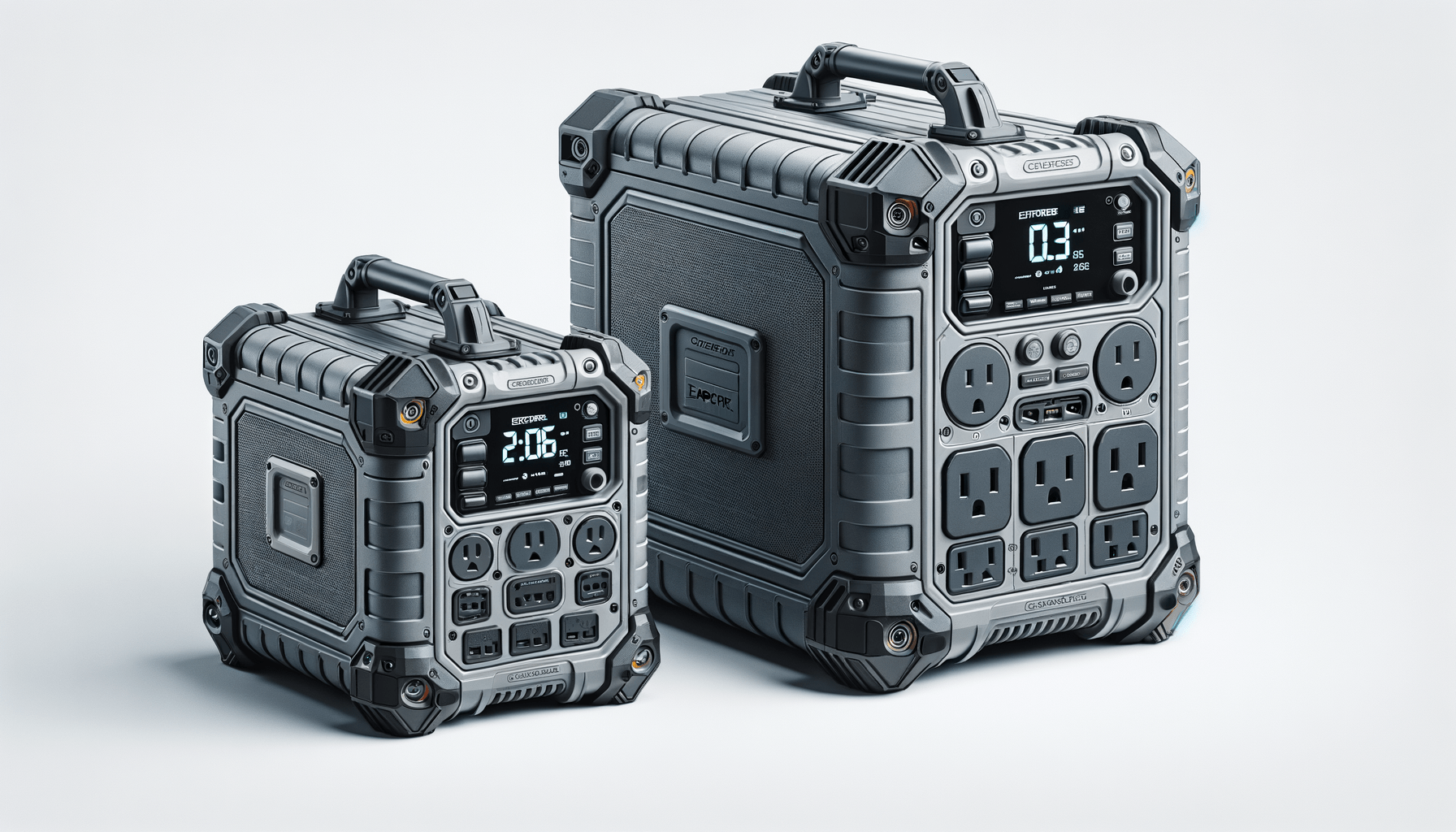The quest for reliable portable power has led many outdoor enthusiasts and emergency preppers to explore various options available in the market. Two noteworthy contenders in the arena are the Jackery 240 and BougeRV FORT 1000. Both offer distinct features and specifications that cater to different needs. Let’s dive in and compare these powerhouses to help you decide which suits your power needs best.
Power and Capacity
When it comes to capacity, the Jackery 240 is equipped with a 240Wh lithium-ion battery, making it suitable for small appliances and charging personal devices. On the other hand, the BougeRV FORT 1000 steps up the game with a robust 1120Wh LiFePO4 battery, capable of handling more demanding power needs, including full-size refrigerators and car fridges.
Charging and Output Options
The Jackery 240 offers a pure sine wave AC outlet, a DC car port, and two USB-A ports, accommodating a variety of devices. The BougeRV FORT 1000, with its multiple AC outlets, DC ports, and both USB-A and USB-C ports, including Quick Charge 3.0, provides a more diverse array of output options for a wider range of appliances.
Portability and Design
Weighing just 6.6 lbs, the Jackery 240 is a lightweight option for those on the go. In contrast, the BougeRV FORT 1000 is heavier at 28.7 lbs but offers significant power for those requiring more robust output, and it still maintains portability with its dual handles.
Durability and Lifespan
The LiFePO4 battery in the BougeRV FORT 1000 ensures a longer lifespan with over 3500 charging cycles, backed by an extended 5+2 year warranty. While the Jackery 240 utilizes an NMC battery with a standard 2-year warranty, offering reliability and quality for less intense usage scenarios.
Solar Charging Capabilities
Both units can harness solar power for eco-friendly charging. However, the FORT 1000’s integration of MPPT technology might appeal to those seeking more efficient solar charging experiences.
Comparison Table
| Feature | Jackery 240 | BougeRV FORT 1000 |
|---|---|---|
| Battery Type | Lithium-ion (NMC) | LiFePO4 |
| Capacity | 240Wh | 1120Wh |
| Weight | 6.6 lbs | 28.7 lbs |
| Warranty | 2 years (extendable to 3 years) | 5+2 years |
| AC Output | 1 outlet (200W, 400W peak) | 3 outlets (1200W, 2000W peak) |
| DC Output | 1 car port | 2x DC5521, 1x Cigarette Port |
| USB Ports | 2x USB-A (2.4A each) | 2x USB-A (2.4A each), 1x USB-A QC3.0, 1x USB-C |
| Charging Methods | Solar, Wall, Car | Solar, Wall, Car |
| Solar Panel Compatibility | SolarSaga 100W (not included) | BougeRV solar panels (sold separately) |
| Operating Temperature | 14-104℉ | Unspecified |
| Cycle Life | Unspecified | Over 3500 cycles |
Ultimately, the choice between the Jackery 240 and BougeRV FORT 1000 comes down to individual power requirements and intended use. The Jackery 240 shines in light-duty applications and is commendably portable, while the BougeRV FORT 1000 offers extensive power for more demanding situations.


Whether you are camping, preparing for emergencies, or just in need of a backup power source, assessing your needs could steer you towards the Jackery 240 for its portability and light power usage, or the BougeRV FORT 1000 for its enhanced capacity and lifespan. Consider your gadgets, appliances, and how you plan to use the power station to make the best investment for your lifestyle.


Leave a Reply